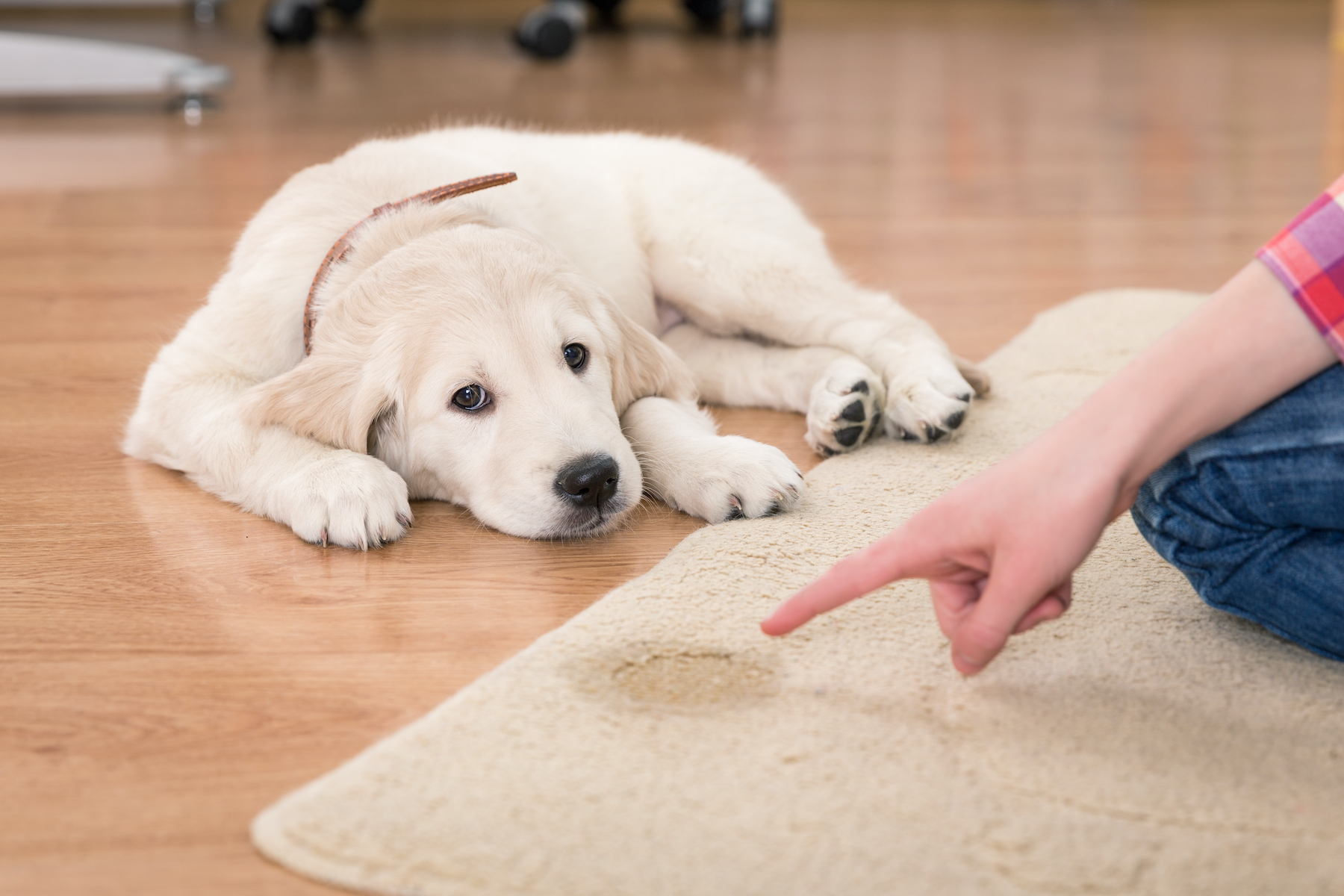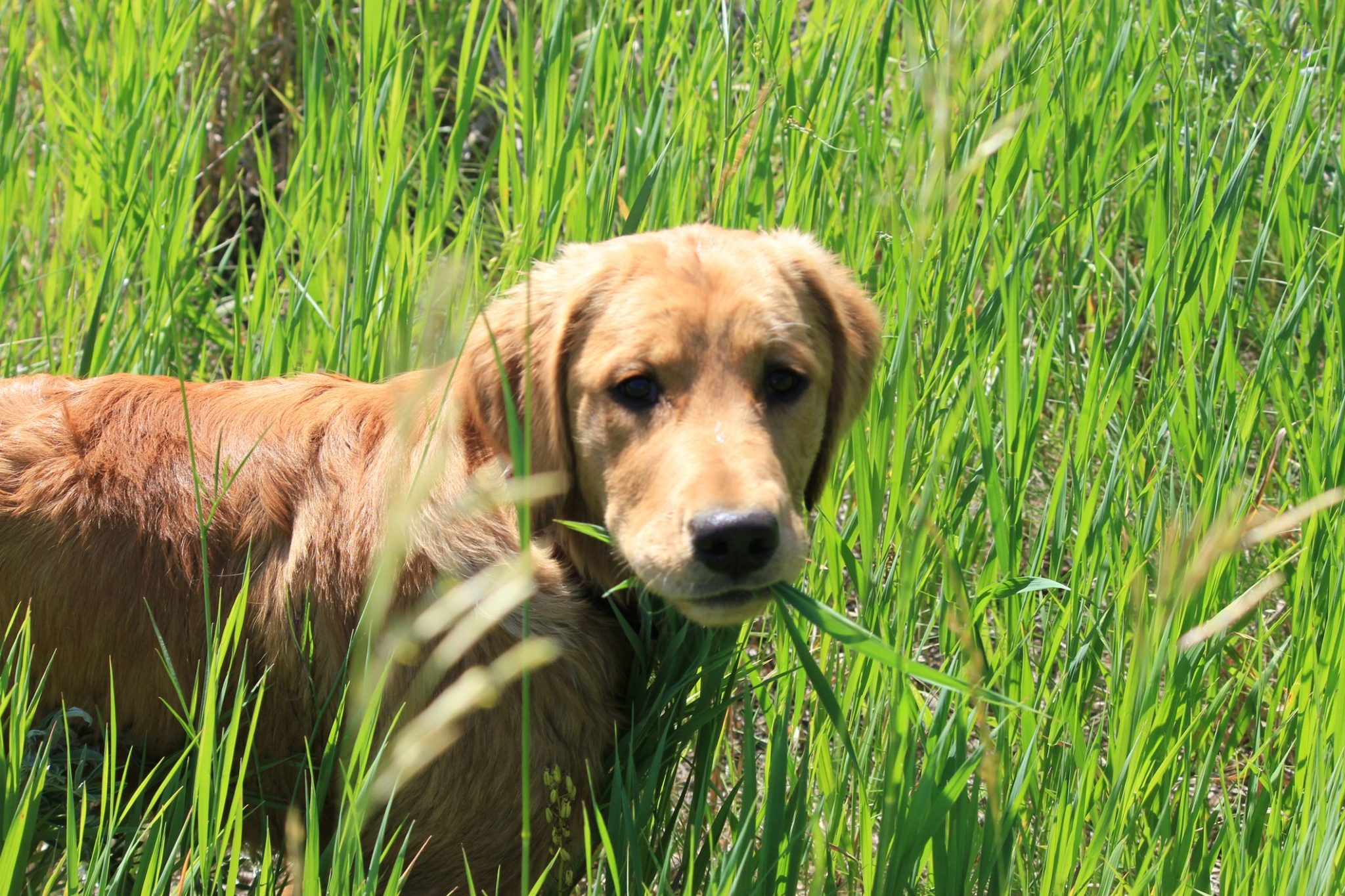You arrive home to find your favorite shoes destroyed and fluffy culprit cowering off to the side. Tail tucked, head down, your dog looks for all the world like they feel guilty about their crime. But can dogs feel guilt in the first place? Or is that remorseful look all in our heads?
Science shows true emotional guilt requires complex cognition that dogs lack. However, dogs absolutely learn to associate “guilty” body language with appeasing annoyed owners. Their “guilty look” is actually just fear of punishment or scolding.
In this article, we’ll analyze whether dogs feel actual guilt and tips for handling unwanted behaviors positively. Let’s dive in to canine remorse realities!
Do Dogs Possess the Capacity for Guilt?
True guilt involves the ability to reflect on actions, understand how they impact others, and experience remorse over wrongdoing. Research suggests dogs likely don’t have the cognitive capabilities to experience this complex emotion.
Dogs lack skills like:
- Sense of morality: Dogs don’t understand “right” and “wrong.”
- Theory of mind: Dogs can’t perceive how their behavior impacts human feelings.
- Self-conscious reflection: Dogs only live in the present moment.
- Abstract thinking: Dogs process the literal rather than the philosophical.
Without these mental skills, dogs cannot feel psychological guilt in the human sense. So what’s really behind the “guilty look?”
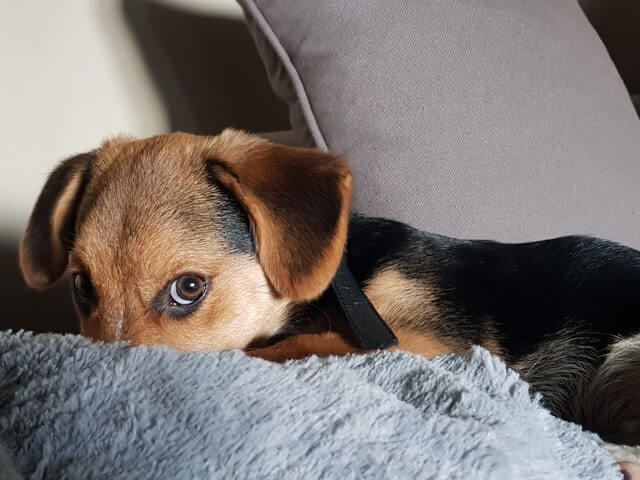
The Real Trigger Behind the Guilty Expression
While dogs don’t experience internal guilt, they absolutely learn to show guilty behaviors in response to owner body language. Dogs display “guilt” when:
- Owners use an angry tone of voice or scolding words.
- Owners stare intently, point, or physically loom over dogs after destruction.
- Body language indicates the owner is upset.
- Punishment typically follows undesired behaviors.
To dogs, destruction itself has no moral significance. But they learn certain “guilty” responses successfully pacify owners’ annoyance. The head duck, slumped body posture, and avoidant eyes all communicate appeasement or submission to defuse human anger.
In summary, dogs don’t feel shame. But they adeptly learn guilty body language as a survival mechanism.
Why Do Dogs Show Guilty Behavior Before Getting In Trouble?
Some owners swear their dogs display guilty behavior before the human even discovers the dog’s misdeed. Why? In reality, the dog is simply responding fearfully to subtle owner cues like:
- Tone fluctuations
- Body language changes
- Disruption to routine
- Energy shifts in the household
Dogs sense our moods far before we notice it ourselves. Your dog knows the shoe destruction will upset you long before you ever see the ruined shoes. So they display “guilty” appeasement behaviors preemptively.
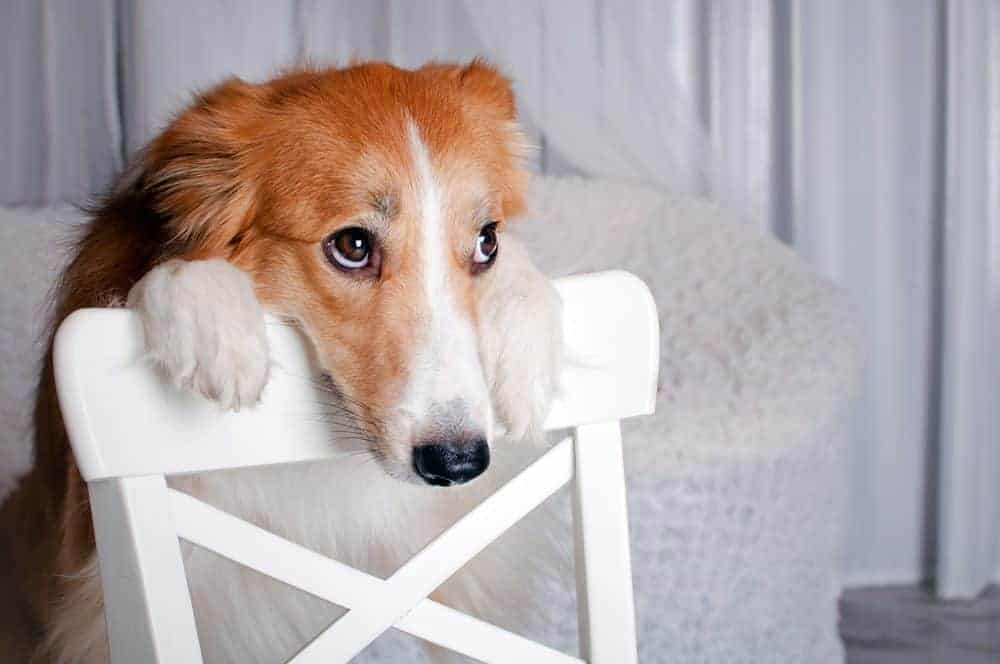
Is Guilt-Tripping Dogs Harmful?
Punishing guilty behavior and scolding after the fact may seem natural but can damage relationships with dogs. Fallout includes:
- Increased anxiety and stress.
- Erosion of trust and bond with the owner.
- Fear-based aggression to avoid inevitable punishment.
- Concealment of normal dog behaviors to avoid “getting in trouble.”
- Lack of understanding the unwanted behavior itself is actually the problem.
A better approach is simply interrupting unwanted behaviors, redirecting to an approved alternative, and rewarding good conduct.
Tips for Handling Unwanted Behaviors
Try these positive approaches instead of scolding guilty behavior:
Prevent access: Manage the environment so undesirable behaviors like chewing are impossible in the first place.
Redirect: At the first sign of inappropriate behavior, interrupt and immediately direct dogs to a preferred toy or activity.
Reinforce obedience: Ask for a simple obedience behavior like “sit” to redirect your dog’s brain away from the bad behavior.
Train alternatives: Teach and generously reward desired replacement behaviors incompatible with unwanted habits.
Avoid punishment: Harsh corrections only fuel fear without teaching precise alternative behaviors.
Be proactive: Set your dog up for success by providing plenty of enrichment, exercise, and bonding time.
With patience and positive methods, you can reduce unwanted behaviors without damaging the human-animal bond through ineffective guilt tripping.
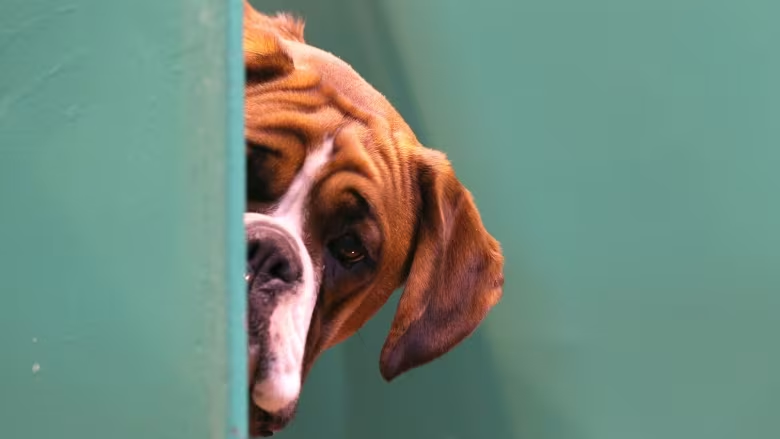
Frequently Asked Questions
Still have some lingering questions about guilt and dogs? Here are quick answers to some common concerns:
Why does my dog go hide when he’s done something wrong?
Hiding doesn’t equal remorse over the action itself. Rather dogs want to avoid the inevitable anger and punishment from you afterwards.
If my dog destroys pillows every time I’m away, isn’t that guilt-motivated?
Not at all. Your dog is likely stressed when alone and needs more enrichment or gradual alone training. Punishment will only increase their anxiety.
Why does my dog tuck his tail and slink away when I scold him?
These postures communicate appeasement and deference to you. The dog is simply trying to deactivate your anger, not expressing remorse over a misdeed.
How do I stop unwanted behaviors without scolding?
Use distraction, redirection, and rewards for positive opposites. For example, interrupt chewing and redirect to a sanctioned bone. Avoid punishment which is counterproductive.
Why does my dog display guilt before I even find their mess?
Your dog is simply responding to subtle body language, energy and situational cues signalling you’ll likely be angry soon once discovering their destruction. They want to appease preemptively.
While the guilty look certainly seems convincing, true moral-based shame requires complex cognition dogs simply don’t possess. Avoid ineffective guilt trips and instead take a positive training approach. If you have any other dog behavior questions, please reach out!
